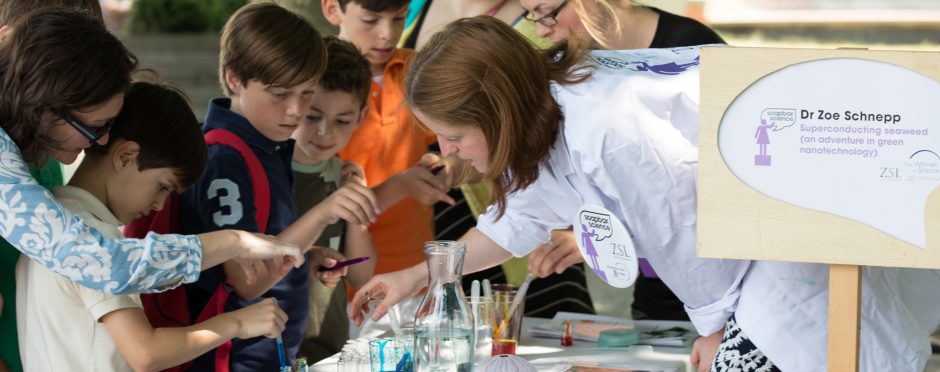 Jessica Clark is a PhD student at the University of Edinburgh, working in the Institute of Evolutionary Biology. Her research is about how epigenetic maternal effects can impact offspring fitness and the role this plays in disease transmission. Catch Jessica on her Soapbox on Sunday July 24th in Edinburgh where she will talk about “Mumma’s always right! How mums prepare their offspring for the big bad world”.
Jessica Clark is a PhD student at the University of Edinburgh, working in the Institute of Evolutionary Biology. Her research is about how epigenetic maternal effects can impact offspring fitness and the role this plays in disease transmission. Catch Jessica on her Soapbox on Sunday July 24th in Edinburgh where she will talk about “Mumma’s always right! How mums prepare their offspring for the big bad world”.
SS: Jessica, How did you get to your current position?
JC: I started out my university education in journalism. Realising this wasn’t for me, I took a bit of time to reassess what I wanted out of a career. I went back to university a couple years later and did a Zoology degree at the University of Glasgow. I was lucky enough to work with some amazingly inspiring people who gave me the opportunities to explore and experience and ask questions. I continued working for the University of Glasgow for a year after graduating, as a research assistant. This time really developed my understanding and excitement about research and made me feel more prepared to go down the path towards a PhD. I had heard great things about the department in Edinburgh, so when I saw a position advertised I jumped at the chance!
SS: What, or who, inspired you to get a career in science?
JC: Inspiration comes from so many places! My mum has been a nurse my whole life and has always worked incredibly hard to be great at what she does and is always working to learn more so watching that whist growing up definitely played a big part. Dr Heather Ferguson and Dr Barbara Helm at The University of Glasgow are incredible women also! So dedicated to what they do, but with so much compassion, they provided me with many opportunities.
SS: What is the most fascinating aspect of your research/work?
JC: I thoroughly enjoy how a simple question can grow so many legs! Something might seem so simple and suddenly you’ve opened Pandora’s Box!
SS: What attracted you to Soapbox Science in the first place?
JC: Having come at a scientific career from a slightly different route, I really like to facilitate people’s desire to ask questions and get interested! It seems to be a really creative, really amazing way to inspire people and make science more accessible, which is so important when certain demographics are so vastly underrepresented.
SS: Sum up in one word your expectations for the day – excitement? Fear? Thrill? Anticipation?
JC: A little bit of fear and a lot of excitement!
SS: If you could change one thing about the scientific culture right now, what would it be?
JC: I would like for science to be seen as a field with its doors wide open to anyone inspired to ask questions. For so long it has been shrouded in the notion that the doors only exist to a privileged few, but this is changing and I would like more people to feel that they would be respected and just as entitled as anyone else to explore.
SS: What would be your top recommendation to a female PhD student considering pursuing a career in academia?
JC: Go for it! Your hard work, opinion and knowledge are as important as anyone else’s, and you never know who you could inspire.
